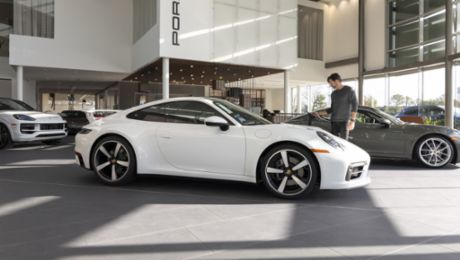Mr. Blume, Mr. Meschke, you are both big sports fans. What has been the biggest and most exciting sporting event so far in your view?
Oliver Blume: Definitely Germany’s World Cup victory in 2014. Watching the German national team beat France, Brazil, and then Argentina in the final was a pure thrill. A fantastic team effort. Every player believed in the World Cup victory and gave it their all on the pitch.
Lutz Meschke: I couldn’t agree more. It was a highly emotional event for me too, especially as I had watched two matches in Brazil beforehand: Germany’s group match against Ghana and Croatia versus Mexico. It really is a unique experience to sit in the stadium and to feel at firsthand how football can bring people together. My most heartbreaking experience was the final of the 1976/77 European Cup, where Borussia Mönchengladbach were extremely unfortunate to lose 1–3 to Liverpool. I was 11 at the time and a huge Borussia fan; that year, they had become German champions for the fifth time in the 1970s. It was an incredible squad, and their attacking play was legendary. On good days, they could simply steamroller their opponents.
The German national team could have benefited from some of this hunger for goals in Qatar.
Meschke: Yes. And the team does have to accept some criticism, as there is a fine line between success and failure at this level. At such an important tournament, they should be focused completely on sporting success, without allowing themselves to be distracted. Just as the Croatians and the Moroccans managed. Despite having much fewer resources at their disposal, they managed to make them go much further by playing as a team and showing more German qualities than the Germans.
Blume: At least our team managed to leave the field with their heads held high following their win against Costa Rica. It’s also important that they came out fighting against Spain after the opening match and tried to take the initiative. After all, the key factor is to be confident about, and believe in, your strengths as a team. As an experienced player, you have to lead by example and take the younger ones with you. I firmly believe that this applies both in football and at a company.
At a World Cup, you can never know in advance whether you are going to win, however intensive and however perfect your preparation. In the career of a top executive, an IPO is a bit like a World Cup, but with one key difference: here, you had to be successful. How do you plan this kind of highlight to make sure that it goes well?
Blume: In-depth internal preparation is crucial to success. Then, it’s vital to have the right external partners on board. The equity story, capital markets day, and talks with investors have to be 100 percent right. It’s all about telling the right market story — a story that is consistent, coherent, and has a long-term focus. It starts well before the IPO itself and offers an exciting long-term perspective.
Meschke: In our case, it was not only the management of the Volkswagen Group, as the seller, but also the various shareholders of the VW Group — that is, the family owners, the Qatar Investment Authority, the State of Lower Saxony, and the workers’ representatives — who needed to overwhelmingly get behind the tripple-win situation: the sustainable and profitable growth of Porsche, with attractive dividends. And yes, we managed to bring everyone round to our way of thinking.
Porsche is a company that always has to win. How important is it to be able to handle pressure?
Blume: The flotation brought everyone on the Executive Board closer together. We know that we can count on each other. And the same goes for every single member of our top-class team here at Porsche. This is what enabled us to achieve our current level of performance. This team effort has made Porsche the strong company that it is today: agile and highly profitable, sustainable, and boasting a product portfolio with a diversity that is unmatched in the luxury automotive segment.
Meschke: Perfect organization, with the right priorities, represents another key factor. Each executive must be able to delegate while still retaining a strong sense of constructive collaboration, underpinned by mutual respect. Ultimately, it’s the quality of the team that lets you sleep at night. It’s the job of the senior executives to assemble and mold the team.
Football and corporate management have a few things in common. Can lessons from the sporting arena be applied to the world of business?
Blume: Yes. Many of them, in fact. After all, success is the result of teamwork. It’s possible to achieve great things if everyone sticks together and fights for the same goal. Just like in football, the right players have to be deployed in the right positions. Like a football manager, a senior executive has to communicate the system, tactics, and the right team spirit. This means that leadership positions need to be held by leaders who embody responsibility and build trust. As an Executive Board, we need to authentically convey the vision to win the title — a vision for which everyone is willing to go the extra mile.
Meschke: In the weeks and months leading up to the stock market flotation on September 29, clear leadership, strong teamwork, and a genuine fighting spirit were more important than ever. The tension was high; the team surpassed itself on occasion. Oliver Blume and I spoke to every conceivable investor, fighting up to the very last minute before the IPO. The launch on the Frankfurt Stock Exchange marked a historic day: Porsche AG back on the stock market. Measured by market capitalization, it was the largest IPO ever in Europe. We achieved one of our most prized dreams. And thanks to the independence we have gained through the IPO, we are in a stronger position than ever. This success forges bonds. The Executive Board stands shoulder to shoulder, and we know that the team has our backs.
Many aspire to win the title, but very few are successful. To what extent can titles and management achievements be planned?
Blume: I am a firm believer that success can be planned. Guided by this same belief and a smart plan, football coach Ralf Rangnick led two teams — Hoffenheim and Leipzig — from the regional leagues to the top division of the Bundesliga, even taking the latter into the Champions League. What makes the feat so special is that he predicted the success in advance. By the same token, there are no coincidences in the automotive industry. We have planned the sustainable success of Porsche. We are strategists and doers. The key factor is to think in terms of opportunities.
We see change as an opportunity. We drive it forward proactively and systematically. Based on a clear strategy and ambitious goals. And just like in sport, we strive to build on successes and learn from defeats, with speed and focus playing a vital role. You also need the courage to do the right thing — and do it with determination. Take the moment, for instance, when we decided to develop the Taycan, sending a signal that we are driving forward the first fully electric sports car from Porsche. We were ahead of the curve in terms of electric vehicles back in 2015 — and the continued high order volume for the Taycan proves we were right.
Meschke: You just have to be able to recognize the decisive moments or, to stick with the football metaphor, convert the penalties at crucial moments. The Taycan paved the way. The same applies to stakebuilding, the partnership with Rimac, and the formation of the Bugatti Rimac joint venture, in which we hold a 45 percent investment. With our majority stake in the Cellforce Group, on the other hand, we will be manufacturing high-performance batteries. We are pursuing the path of electrification with determination, building a technologically leading position with a broad base. We also regard eFuels as an effective complementary solution, as they enable combustion engines to run in a virtually carbon-neutral way. In Haru Oni in southern Chile, we recently opened a pilot plant together with partners. Breaking new ground takes courage — and is not without its risks. But courage is the only way to win the race.
The Taycan and the move into electric vehicles were like “winning the title,” and the same can be said about the IPO. But winning the Champions League is one thing, defending it time and again is quite another. Is Porsche the equivalent of Real Madrid, the only club to achieve this feat?
Blume: There are two key points here: firstly, we need to be able to evolve our system. I like to say that Porsche has always been Porsche, despite constantly evolving. Secondly, we have to ensure that the players in our team stay hungry, even after winning titles. Passion, a pioneering spirit, and innovative excellence are what count. With that in mind, Porsche does indeed have the potential to be like Real Madrid.
Meschke: Our goal is to stay one step ahead of the market. The independence gained through the IPO, for instance, enables us to deploy another new tactic. We are strengthening our position in the key areas of software and battery technology. Our goal is that more than 80 percent of our new sports cars sold in 2030 will be fully electric. They will also bear the hallmark of Porsche, that is, they will be exceptionally sporty while offering superb performance and outstanding charging capability. Our fully electric sports cars will embody a new vision of the future.
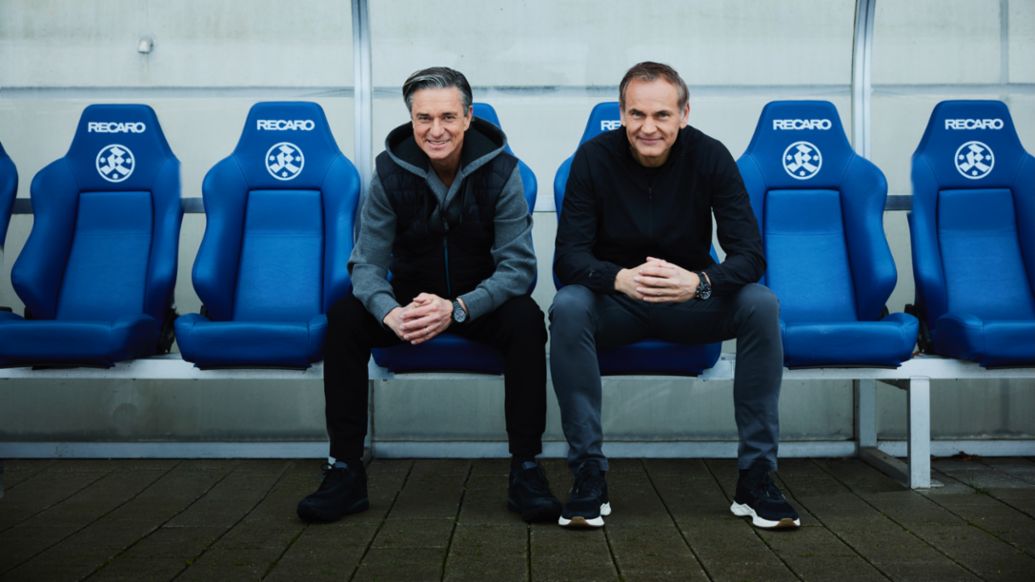
But you also hear people say “never change a winning team” — alterations to successful teams should be made carefully so as not to jeopardize success.
Blume: The independence gained through the IPO, however, does not mean that Porsche is turning its back on the Volkswagen Group. By virtue of a contractually regulated separation between the companies, synergies will be retained within the group. We will continue to use purchasing volumes, components, technology, and factories. So although we are clearly positioned within the luxury segment, we will continue to harness economies of scale. Thanks to this outstanding formation, our defense is — to continue the footballing analogy — solid. We can then score goals with attractive and luxurious products that make our customers’ dreams come true.
Meschke (LAUGHS): And to complete the footballing analogy, the perfectly synchronized Executive Board passes the ball forward. We really enjoy fostering young talent. In recent years, we have developed roughly half of our top-level executives from other positions; in some cases, we have promoted talented Porsche youngsters and, in other cases, recruited personnel from outside the company. Looking forward, Sajjad Khan will join the Executive Board from outside and take the helm of Car-IT. It’s always about building the right team. We can clearly state, however, that the leadership team has mainly been in place for several years and constitutes the successful core, along with many excellent performers at the level below.
Info
Interview first published in the Annual & Sustainability Report 2022.
.png/jcr:content/Meschke%20Blume%201.png)
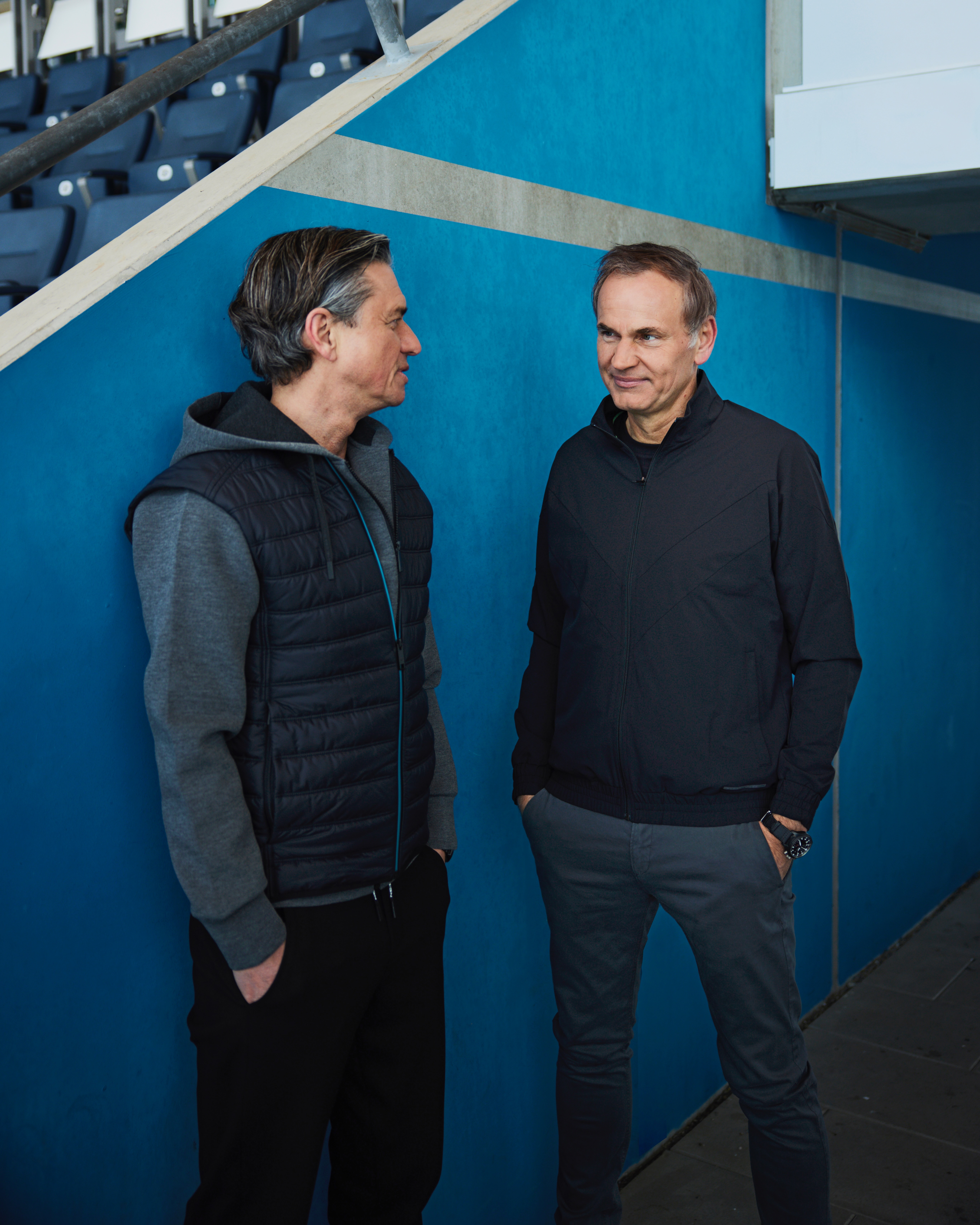
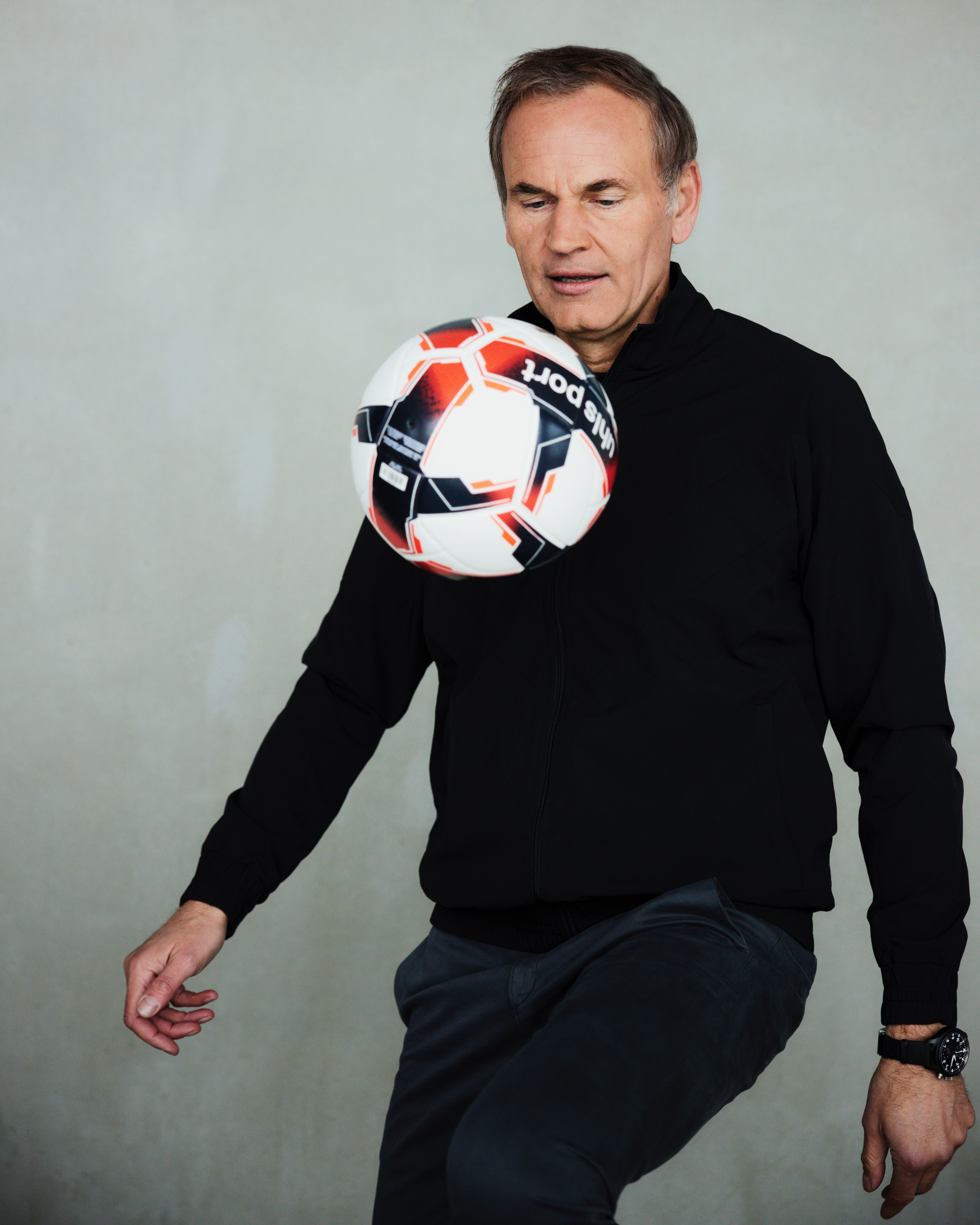
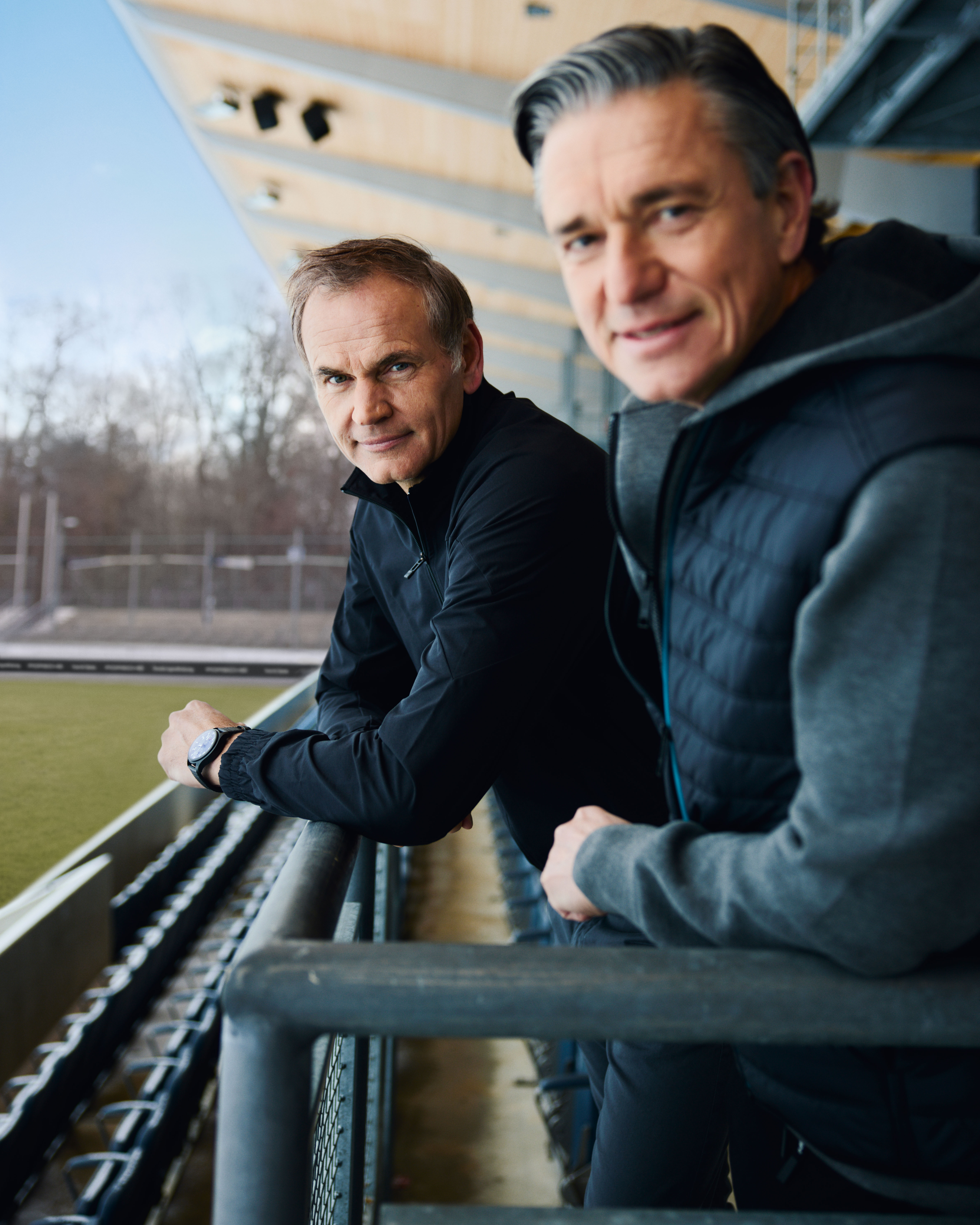
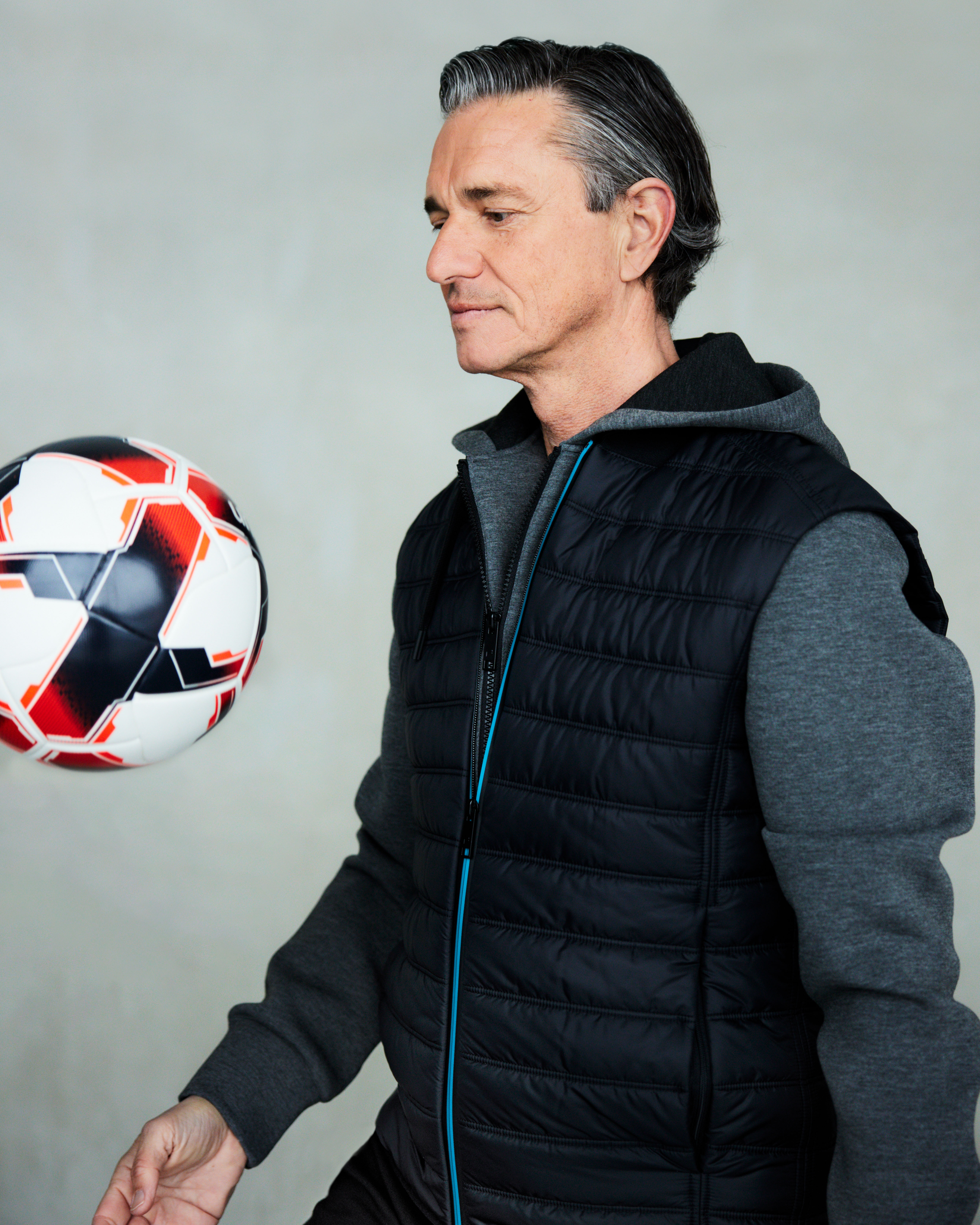


.jpg/jcr:content/Image%20(55).jpg)
